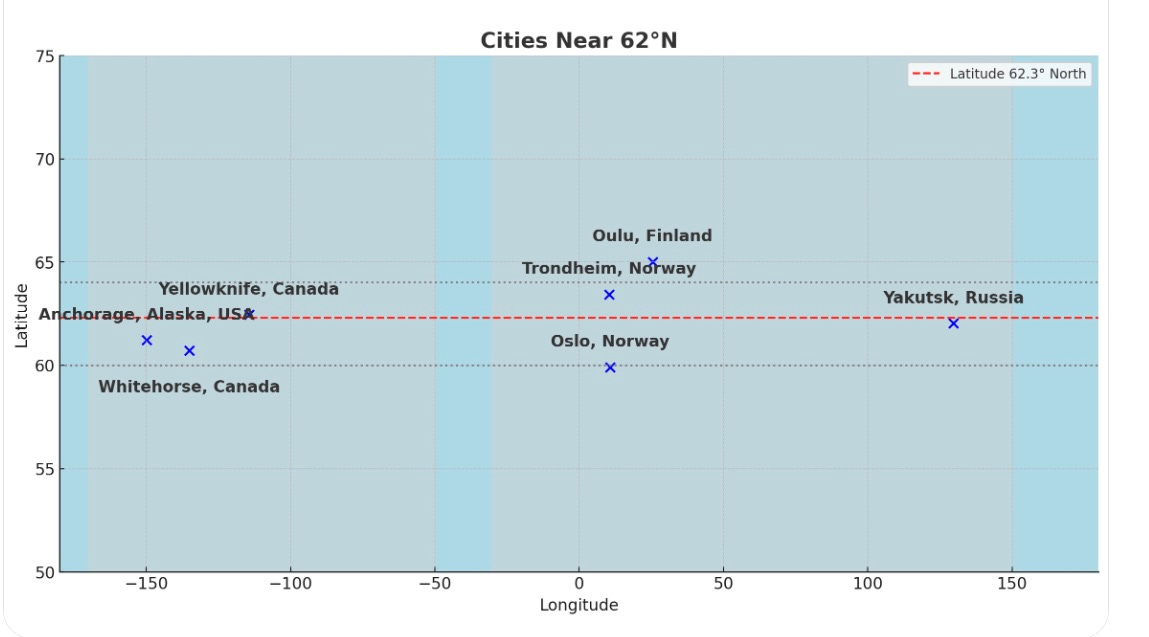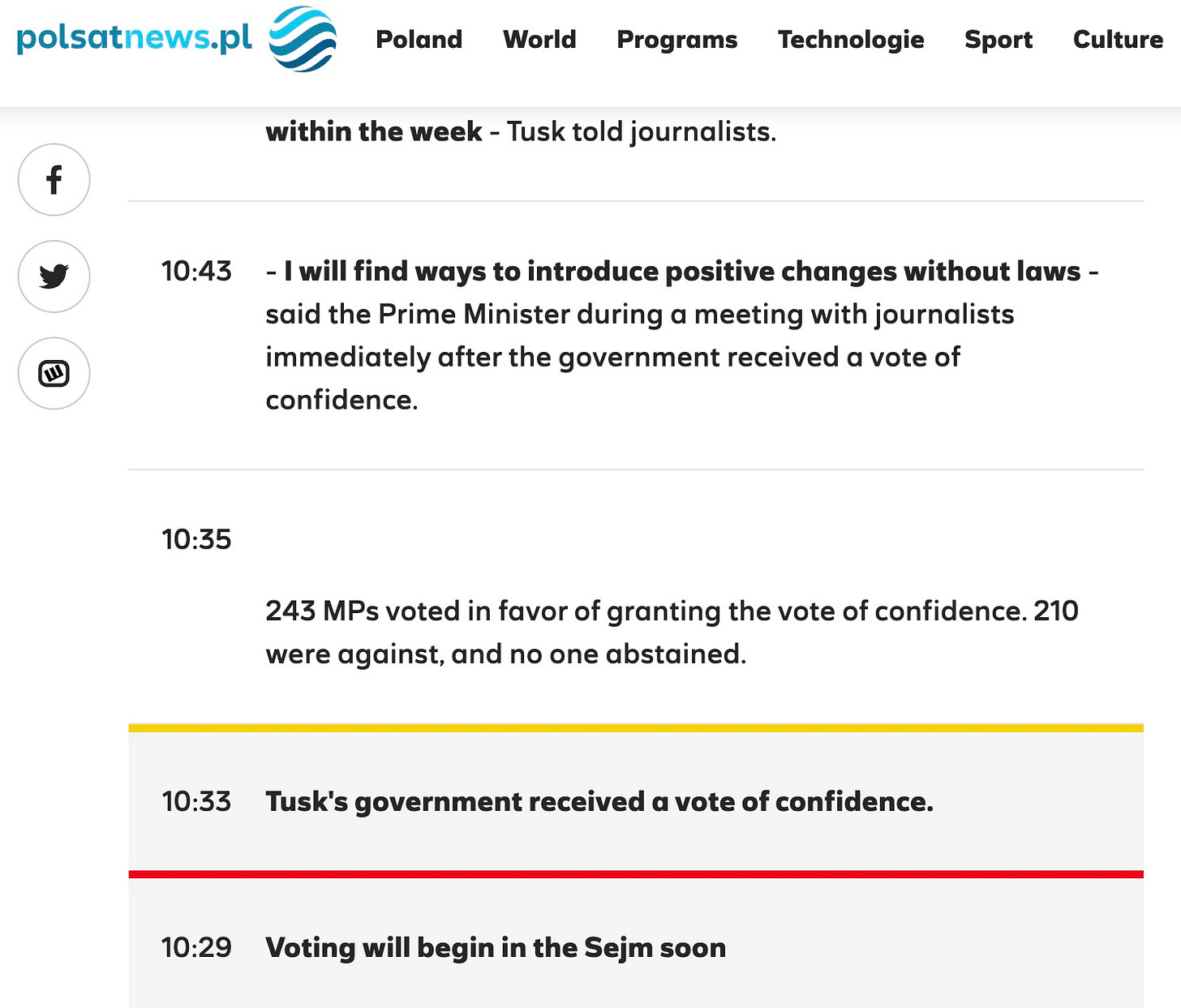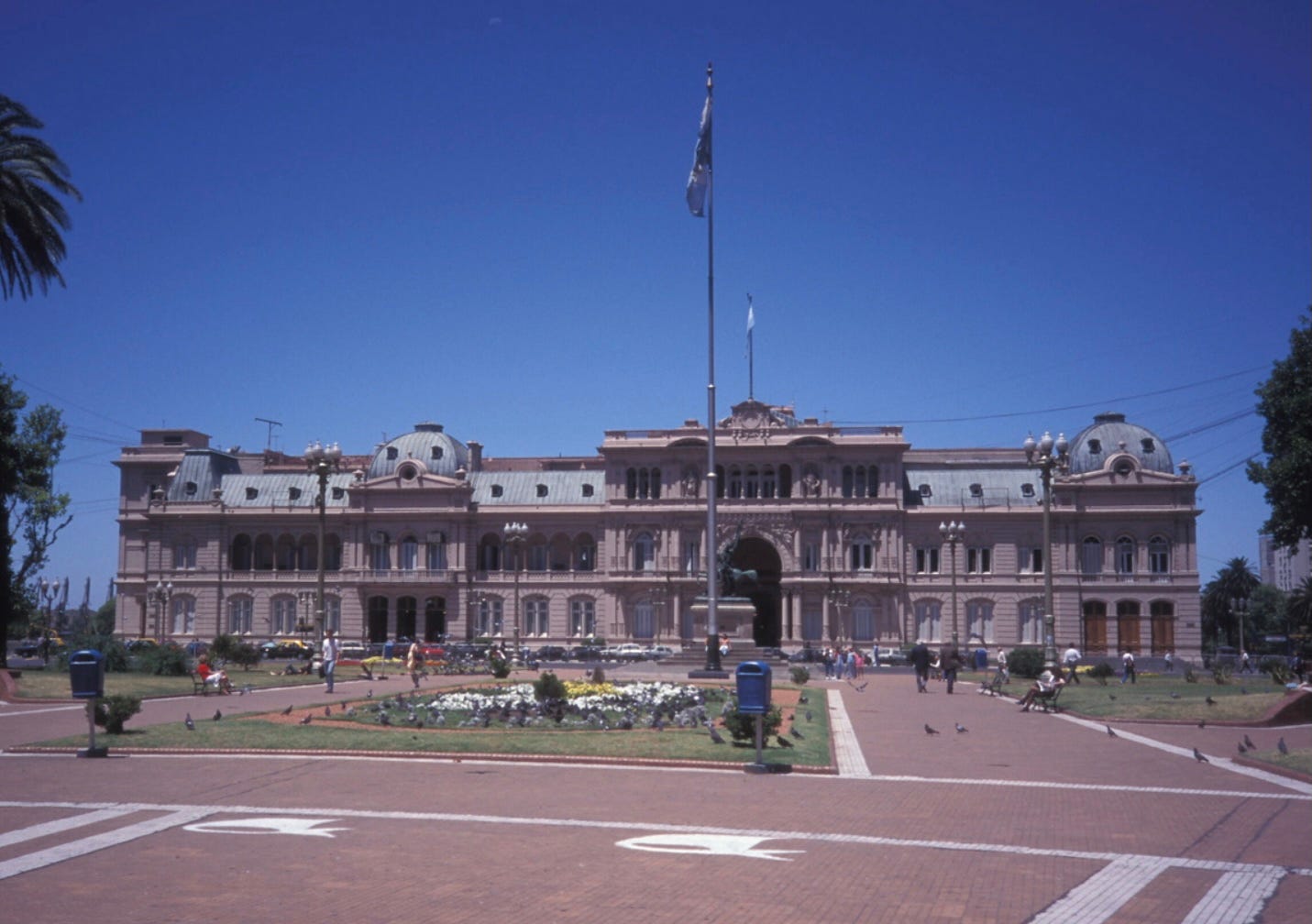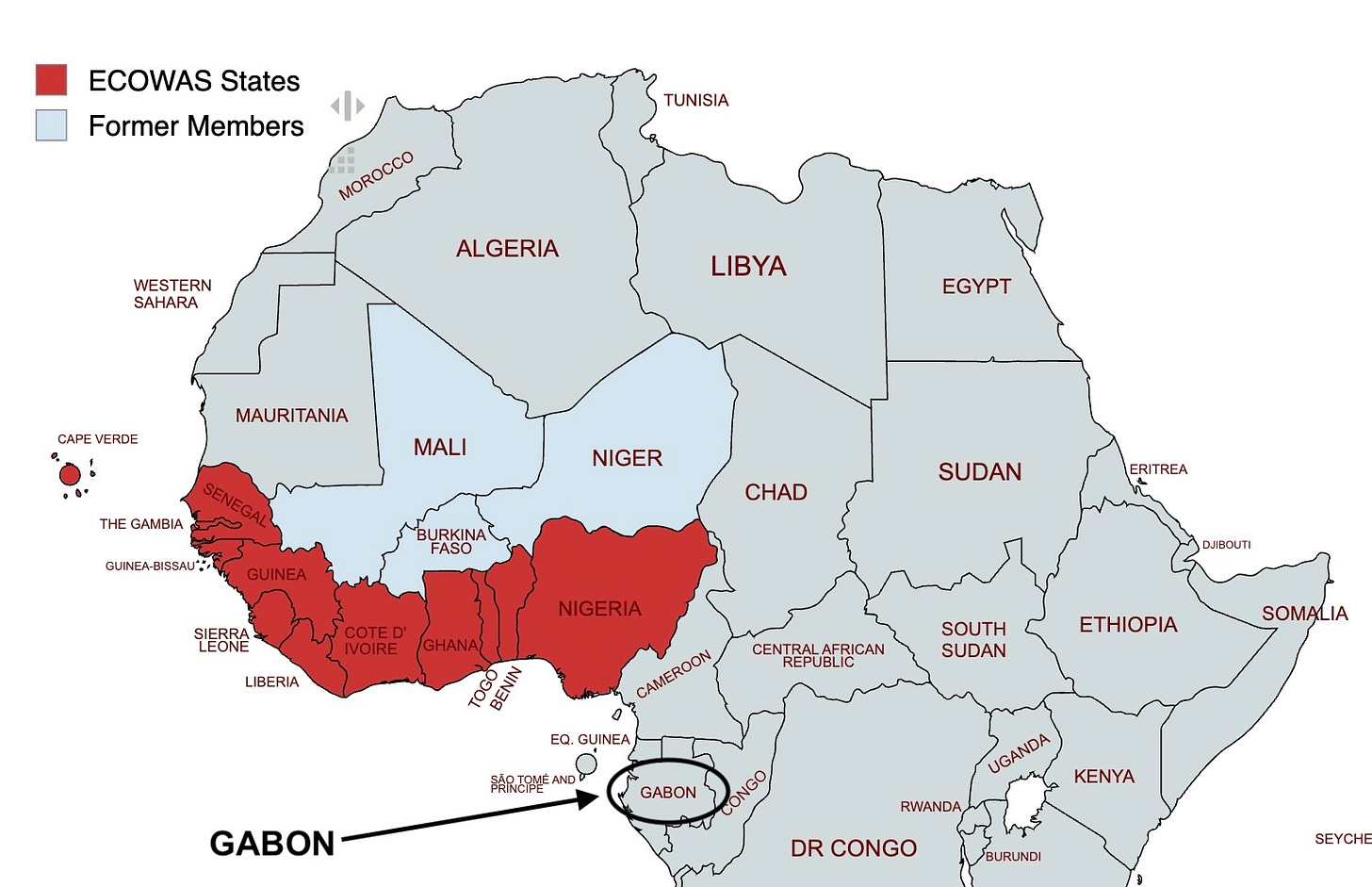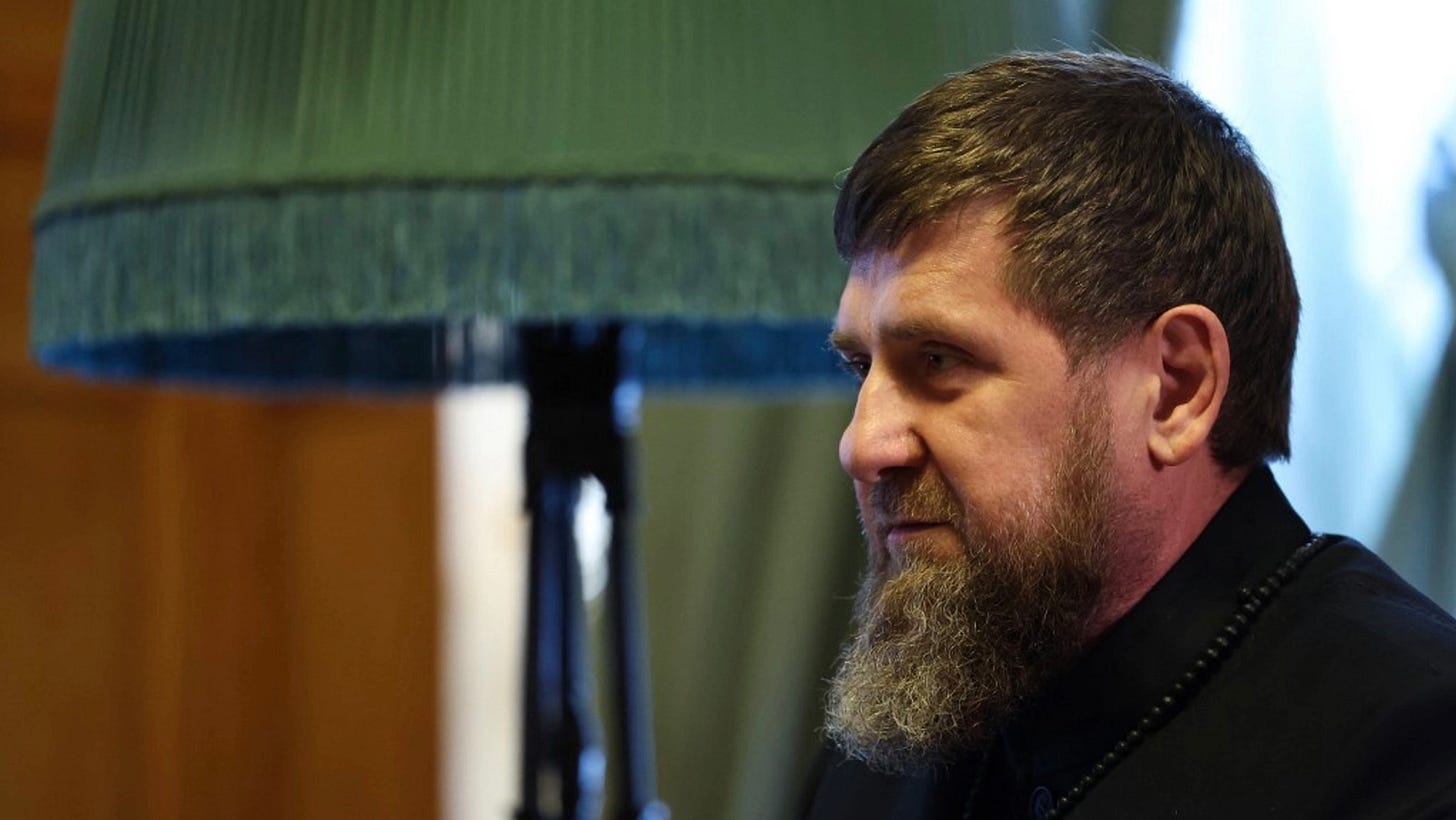Welcome to Common Sense and Whiskey, a short, sharp, weekly look at the world out there, delivered free to subscribers on Fridays.
We’ve been heavy on European news for several weeks now, and we’ll be all wrapped up in NATO summit prep by next weekend, so his time, let’s have a look at the wider world. First a quick check on a few things we’ve been following, and then: Argentina. With Javier Milei’s midterms approaching, what’s going on down there? And the Economic Community of West African States just turned fifty. Could it at least blow out all the birthday candles?
If you find any insights here, please consider subscribing to Common Sense and Whiskey. It would be great if you could contribute, but there are no paywalls here. You can always read the whole column.
Please let me know what you think.
•
It’s summertime here in Atlanta, and we’ve got a few more weeks before we escape to our secret redoubt at 62 degrees north latitude:
Because yep. Summers are cooler there.
•
Ukrainian President Zelenskyy told ABC News last week that approximately 20,000 anti-drone missiles, which were promised to Ukraine, had instead been diverted to U.S. forces in the Middle East.
With Israel’s attack on Iran this morning Middle East time, now we know why. The diversion was ordered by Defense Secretary Hegseth, who, on around June 4th, the Wall Street Journal reported, citied urgent “force‑protection” needs.
The Middle East is beyond my writ. I’m not sufficiently knowledgable to write about the region as anything but an observer, but we may fairly infer, I think, that the Trump administration expected an Israeli attack on Iran at least ten days before the Friday the 13th strikes.
Trouble in the Middle East will cheer Vladimir Putin as oil prices rally, providing him more funds with which to wage war. This morning oil prices were on course for their largest weekly gain since 2022.
•
The G7 will convene this weekend near Alberta, Canada. This week the European Union did what it could to force a conversation among G7 leaders about Ukraine, in what looks like an intentional dig at Donald Trump.
On Wednesday, instead of issuing a statement, President of the European Commission Ursula von der Leyen stood before the press to personally announce the EU’s next package of sanctions on Russia. Along with the usual gradual tightening of existing sanctions (adding more Russian banks to the EU’s list of bad guys, for example), it pointedly proposed banning all member states’ use of Russia's currently unused Nord Stream gas pipelines. This at a time when Donald Trump seems to be seeking to allow Russia to regain access to international oil markets. Not so fast, says von der Leyen.
•
In Canada, Prime Minister Mark Carney announced a new defense budget that’s a 17% increase over the current budget, and would get Canada to the current 2 percent NATO benchmark this year, seven years before previous prime minister Justin Trudeau previously promised.
Carney also said, “The United States is beginning to monetize its hegemony, charging for access to its markets and reducing its relative contributions to our collective security.” That is blunt, cold and true.
With all this new defense spending, Ottawa will be aiming to smooth out Canada’s relations with Donald Trump, of course. But maybe Canada’s military really is due for an upgrade. Carney pointed out on Monday that only one of the country’s four submarines is operational.(!)
Carney, and Canada, are hosts of this weekend’s G7 meeting, to be held at a resort about fifty kilometers outside Calgary. The Canadian PM has invited Ukraine, and Volodymyr Zelenskyy is likely to turn up hoping for a meeting with Trump.
Leaders from Australia, the EU and Mexico and will also attend. Mexican President Claudia Sheinbaum said earlier this week that she’ll be there and it’s "very likely" she and Donald Trump will have their first official meeting since her election.
•
On Wednesday, Poland’s Prime Minister Donald Tusk survived the confidence vote he called the week before to stop the political bleeding his coalition was suffering in the Sejm, the Polish parliament. The vote was 243-210.
In a raucous session of parliament, Tusk pledged to try to find a way around constant obstruction of his party’s initiatives, seeking to “introduce positive changes without laws,” as seen below in tick-tock coverage by a Polish news organization.
This is happening not just in Poland, it’s worldwide—attempted rule by executive fiat.
UKRAINE: Some good news, not just for today, but for the future. Remember the hand-wringing and angst that accompanied the Biden administration’s provision of each new bit of American kit to Ukraine?
At one time, administration officials said Abrams tanks were so complicated, they needed so much maintenance, maybe they weren’t a good fit for the battlefield of eastern Ukraine. Maybe they weren’t, but if maintenance is such an issue, why did the US spend billions of dollars to build 8,800 of them?
Then there was the F-16 fighter jet. Three months after Russia’s initial invasion in June 2022, Ukrainians were in Washington pressing lawmakers to supply the jets. It took eleven months for the US to agree—not to supply the planes—but just to allow its NATO allies to train Ukrainian pilots on F‑16 simulators. Skeptics in the White House, Pentagon and State Department argued training would take too long for Ukrainian pilots to ever be ready to fly them.
Late last summer Ukraine finally received its first F‑16s from the Netherlands, Denmark, Norway and Belgium, and last weekend a Ukrainian F-16 went head-to-head with a Russian Su-35—and shot it out of the sky.
Ukraine has shot down Su-35s before, but this was the first confirmed kill by a Western-supplied F-16. And that’s big news, because
“the Su-35 is Russia’s top-tier multirole fighter: advanced sensors, ranged missiles, high maneuverability. The F-16 may be older in design, but the NATO-standard upgrades—radars, weapons, systems—make it a serious match.”
•••••
Now let’s have a look at a couple of places we haven’t looked at in some time.
ARGENTINA: One thing populists are undeniably good at is telling a story. Argentina’s President Javier Milei—what’s he about? There’s all that hair. He had a chain saw before chain saws were cool. Cutting! That’s it. He’s about cutting things, like government. He is a mini-MAGA anti-government populist, and in Argentina, even the MAGA acronym fits.
Midterm elections are due in October. With half of the seats in the lower house of Argentina’s Congress and a third of its Senate up for renewal, what’s going on down there?
You couldn’t say life has been quiet in Buenos Aires for Milei’s year and a half in office. But the free trade, market-oriented, neoliberal Peterson Institute approves:
“Milei has achieved significant milestones: eliminating the fiscal deficit, bringing inflation to moderate levels, reducing the gap between the official and the parallel exchange rate (a free but illiquid market), and implementing the most ambitious liberalization and deregulation program Argentina has seen this century.”
Milei has made deep cuts to public spending, sought to reduce in the size of government, cut over 42,000 state jobs, cut inflation from over 270 percent to around 50 percent and agreed to a $20 billion loan from the International Monetary Fund.
In the process the poverty rate surged to as high as 57% and an estimated 180,000 jobs were lost in Milei’s first eight months. He has slashed regulation to “get the state out of the way” in the name of future growth. Public sector salaries have fallen over 15 percent and unemployment has risen, leaving many without health insurance.
National trade unions organized 24-hour general strikes in April and May grounding flights, halting grain shipments, closing banks and disrupting transportation. Students and professors marched to protest 70 percent cuts in public university budgets.
In February Milei promoted a cryptocurrency project called $LIBRA, causing the price of the meme coin to rise, but when the price dropped he was accused of scamming the public, resulting in around $250 million in small investor losses. Argentina’s Anti‑Corruption Office cleared President Javier Milei earlier this month, determining he acted in a “personal capacity.”
Milei appointed two judges to the five member Supreme Court by presidential decree earlier this year bypassing the Senate. It’s an authoritarian move stolen from Poland’s PiS party, which worked hard to undermine the independence of the Polish judiciary. The Senate rejected Milei’s appointments, and the Supreme Court currently operates with three justices instead of five, and the situation remains unresolved.
In foreign policy, it’s pretty much ‘do whatever America says’: Argentina has bought 24 used F-16 fighter jets from Denmark backed by U.S. foreign military financing. Last week Milei declared Argentina will move its Israeli embassy to Jerusalem. He signed an agreement to work more closely with the U.S. Department of Homeland Security, and agreed that the FBI will provide equipment for Argentina’s counter-terrorism efforts. Donald Trump loves it, and has called his Argentine counterpart his ‘favorite president’.
Flirting with meme coin scandals, slashing government spending and government jobs, belligerence toward higher education, wielding chain saws and funny hair suggest which direction Milei’s political compass points. He spoke at CPAC in Maryland in March, calling for dismantling much of the U.S. federal government, and gave a chain saw to Elon Musk. Trump told Milei, “We’re very proud of you.”
And yet things were so dire under the previous Peronist government, with inflation around 140 oercent and the central bank almost out of money that at this moment, Milei’s favorability numbers outperform Donald Trump’s. An AtlasIntel poll in April showed 41.8% approved of Milei’s performance and 47.5% disapproved. Trump’s disapproval, depending on the poll, hovers around fifty percent.
Milei faces midterms in October.
•••••
If you’re reading this as an email, your provider may clip this article before the end. Try clicking on ‘view entire message’ to see the whole thing, or you can always read everything at Common Sense and Whiskey online.
•••••
ECOWAS’s UNHAPPY BIRTHDAY: The Economic Community of West African States (ECOWAS) was fifty years old last month. On this occasion let’s take a look at what’s going on down there, too.
What was once conventional wisdom slips so quickly from view these days that it’s almost forgotten that not long ago, countries sought to band together in hopes of quaint notions like collaboration, and making progress together.
The Treaty of Lagos created ECOWAS in May 1975 as a grouping of smallish, mostly sleepy, largely militarily inert countries that hoped to improve their economies through cooperation.
It’s safe to say that today, vanishingly few citizens of ECOWAS’s twelve countries give the organization even a passing thought. That’s a shame, given its potential. With birthrates rivaling the world’s highest (Niger leads the world, and Benin, Burkina Faso, Guinea, Guinea-Bissau, Mali and Nigeria rank in the top fifteen), ECOWAS countries are home to 400 million mostly young people.
It really stands as a microcosm of the accelerating chaos engulfing the world.
A round number like fifty years invites reflection, if not in ECOWAS’s case fervent outright soul searching, and for ECOWAS, the outlook is grim. Once a symbol of member states’ aspiration for regional integration, it’s now in an accelerated process of falling apart.
ECOWAS has been no more able to fend off coups, often chaotic, than any other country across the continent, especially in a belt that traces the Sahel from West Africa clear across the continent to Sudan on the Red Sea.
Three rapid fire coups have shaken the Sahel since 2020: In Aug 2020 Malian President Keïta was ousted; the coup led by a colonel named Assimi Goïta. Four months later Captain Ibrahim Traoré led a coup in Burkina Faso, ousting the President. Traoré, now interim president, has postponed elections.
Niger, West Africa’s largest state in area, fell to another coup in July 2023 when the presidential guard removed its semi-democratically elected President. General Abdourahamane Tchiani now heads that junta. ECOWAS threatened military intervention, then chickened out.
Burkina Faso, Mali and Niger, all led by military juntas, then left the alliance and formed the adjacent Alliance of Sahel States, with a suitable acronym.
•
Concurrently with the military violence, France under the Macron administration has dramatically lost influence across the Sahel and beyond in West Africa. As a result of the coups, Mali expelled French troops in 2022, accusing France of neocolonial attitudes, which is surely true.
Burkino Faso asked France to remove its 400 troops based in Ouagadougou, the capital, in January 2023, and after the coup in Niger in July 2023, France refused to recognize the junta, which revoked military agreements, requiring France to withdraw its 1,500 troops and ambassador by December 2023. That made the French retreat from the Sahel complete.
France maintains influence, though, through other means. The same year as the birth of ECOWAS, France established The Communauté Financière Africaine (or CFA franc), used as a straight up tool of continued economic control in the wake of formal colonial rule as, over the next decade, independence movements accelerated everywhere, including in West Africa.
Today, the CFA franc is pegged to the Euro (which replaced the French franc) and still guaranteed by the French Treasury. It’s used today by 8 West African countries, including all three of the Alliance of Sahel States: Benin, Burkina Faso, Côte d’Ivoire, Guinea-Bissau, Mali, Niger, Senegal, and Togo.
Mali and Niger have floated the idea of a new common currency, as has ECOWAS. Its idea since the 1980s has been to create a single currency, the “eco.” But perhaps like its failed military intervention in Niger, it has repeatedly run out of political will. There may also be some ain’t broke/don’t fix it going on there.
In the days of cooperation and dialogue, ECOWAS stood for at least the prospect of a brighter regional future in which common purpose drove policy. At fifty, in these days of fractured everything, ECOWAS doesn’t stand for much of anything.
Two more notes:
It wasn’t just France that lost its military presence in the Sahel coups of the early 2020s. The United States lost its main counterterrorism hub in West Africa, called Air Base 201, at Agadez, Niger. It had been built as a major collaborative construction project with the pre-coup government of President Mohamed Bazoum, was operational since 2019, and served as the American eyes on Libya, among other places.
Before the coup over a thousand US personnel were stationed to the country, with a base in Niamey, the capital, and the $110 million Air Base 201. Niger’s military government revoked the U.S. security cooperation agreement in March last year and the US has withdrawn.
Pre-coup military cooperation with Mali and Burkina Faso was limited, in both countries, to mainly counter terror and US spying programs, and in both countries cooperation has been downgraded.
And finally, while not a member of ECOWAS, Gabon is an interesting player (see the map). Always one of France’s strongest African client states, particularly under the Bongo dynasty (which ruled Gabon from 1967 until 2023), Gabon and France developed deep and intricately woven ties, held together mostly by bribery centered around Gabonese oil, timber, and military infrastructure.
In the 1980s–90s, an explosive scandal implicated prominent French politicians and businessmen (and even German Chancellor Helmut Kohl) in a massive bribery network across Africa, including Gabon. It was a hell of a story, in which a businessman named André Tarallo, aka ‘Monsieur Africa,’ who worked as manager of African affairs for French state-owned oil company Elf Aquitane, used bank accounts maintained by the company to bribe heads of state of Angola, Cameroon, the Republic of Congo and Gabon.
Tarallo used at least $50 million to bribe officials. Another executive, Loïk Le Floch-Prigent, was jailed for providing $30 million a year to Gabon’s then-President Omar Bongo.
It’s not surprising, then, that France secured favorable access to resources in Gabon and other francophone countries, like, for example, in the timber industry. Gabon is essentially a 22 million hectare-plus rain forest.
Roughly 13 million hectares are allocated to logging concessions, and timber is Gabon's second-largest export earner after petroleum. French companies dominate.
But whoops! In 2023, a year of coups in the Sahel, the Bongo clan was overthrown and relations with Paris have subsequently cooled. France has not been expelled, and while evidence of graft haven’t surfaced in public, it’s safe to sat France is laying extremely low in an attempt to maintain its financial interests and, among other things, its military base in the Gabonais capital, Libreville.
•••••
AND FINALLY: Unhappy fellow, unsavory character and authoritarian leader of the Chechen Republic Ramzan Kadyrov has been implicated in untold treachery, in his unfortunate republic and abroad, most notoriously, perhaps, involvement with Boris Nemtsov’s murder outside the Kremlin in 2015. He has recently sent along a cheery note, advising us that “sickness and death are the fate of every person,” in fending off rumors about his health. Which looks grim.
•••••
That’s everything for this week. Thanks for reading. Please pass this article around and invite your friends to subscribe. And let me hear from you. See you next week.
Content on Common Sense and Whiskey is free. There’s no paywall, but if you subscribe for $5 a month or $50 a year for 2025, next time I’m in town I’ll come over and wash your car. Maybe.
You tip your Uber driver, I bet. Sure you do. I claim to have probably approximately as much insight as him or her. Just sayin.
Cheers,
Bill






